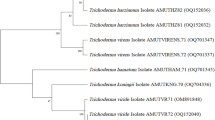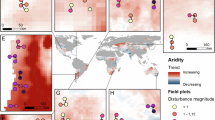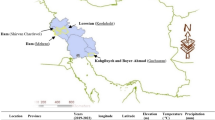Abstract
SUBJECTING seeds to one or more cycles of wetting and drying before sowing, in the process called “hardening”, is said to affect the subsequent growth of plants in adverse environmental conditions. Various Russian workers, cited by May et al.1, have found that such treatment increases the resistance of plants to drought, heat and frost, but others2 have failed to confirm this. We have therefore grown radish plants from hardened and unhardened seeds, in wet and dry soil conditions at three levels of soil fertility, to find out whether hardening alters yields in different circumstances.
This is a preview of subscription content, access via your institution
Access options
Subscribe to this journal
Receive 51 print issues and online access
$199.00 per year
only $3.90 per issue
Buy this article
- Purchase on SpringerLink
- Instant access to the full article PDF.
USD 39.95
Prices may be subject to local taxes which are calculated during checkout
Similar content being viewed by others
References
May, L. H., Milthorpe, E. J., and Milthorpe, F. L., Field Crop Abst., 15, 171 (1961).
Evenari, M., Nature, 204, 1010 (1964).
Author information
Authors and Affiliations
Rights and permissions
About this article
Cite this article
HAFEEZ, A., HUDSON, J. Effect of “Hardening” Radish Seeds. Nature 216, 688 (1967). https://doi.org/10.1038/216688a0
Received:
Revised:
Issue date:
DOI: https://doi.org/10.1038/216688a0



